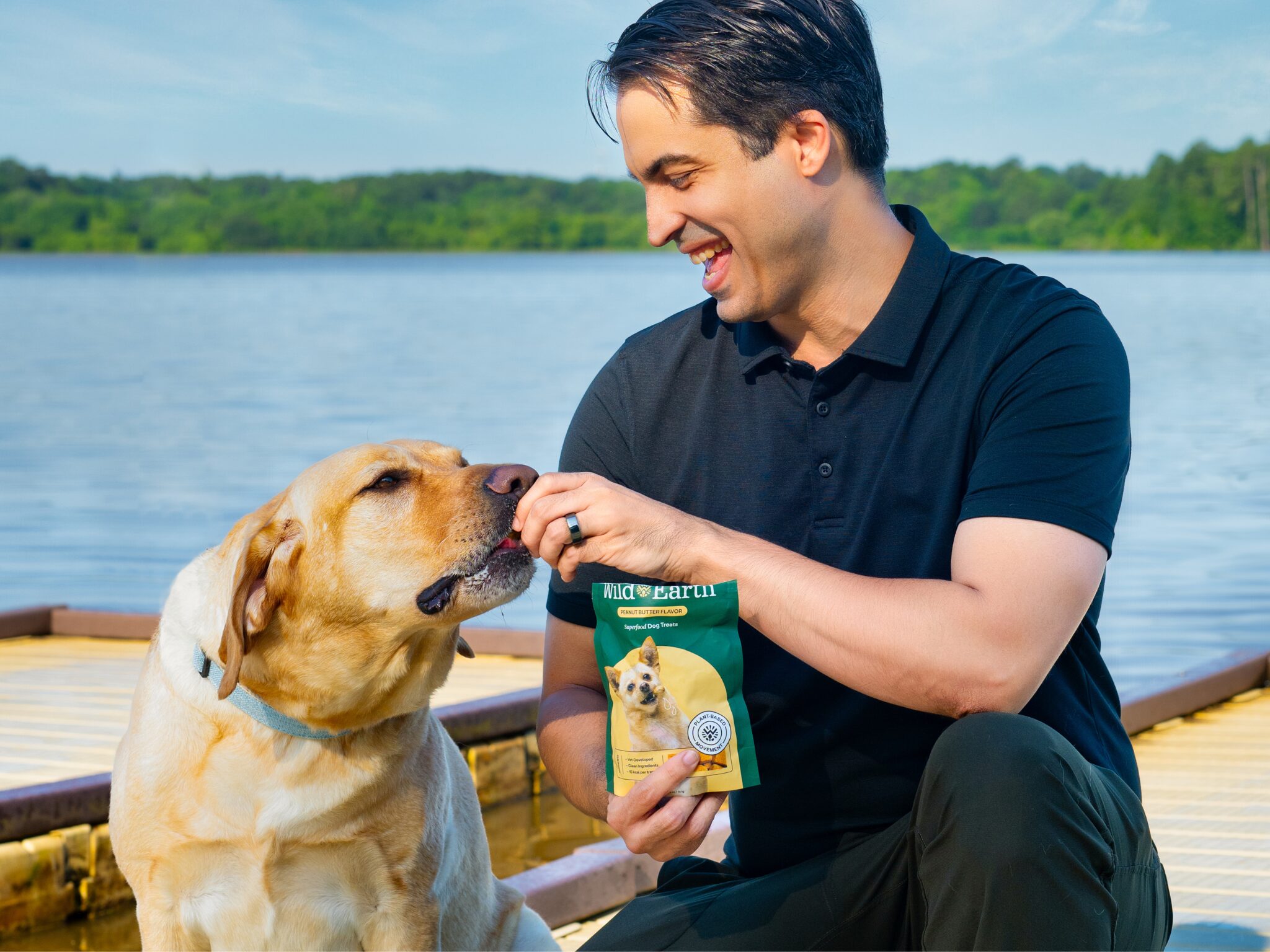Wild Earth’s Ryan Bethencourt: ‘Our Mission is to Make Killer Food, Without the Killing’
12 Mins Read
In an exclusive interview with Green Queen, Wild Earth co-founder and alt-protein investor Ryan Bethencourt talks the death threats he’s received, his experience with Shark Tank and Mark Cuban, his investment criteria, learning from Tesla, media bias, and his company’s upcoming cat food and Basics lines.
“It was honestly pretty brutal,” says Ryan Bethencourt, recalling a trip he took with his father when he was 10. “I loved animals, cared for lots of our dogs and cats, and I then went to see a pig slaughtered in front of me.”
He recalls seeing the fear in the creature’s eyes – as if the life had been drained out of them. “They were sliced up in front of me,” he describes, noting the day he quit pork.
That was over 30 years ago now, a period since which Bethencourt has emerged as a leading scientist, entrepreneur and investor in the alternative protein industry. His trip to the farm provides a snapshot of a man who deeply cares about animals – he grew up with a bunch of dogs, cats and other “exotic pets” – and his company Wild Earth, which makes food for our furry friends, extends that image.
It took him until his late teenage years to go fully vegetarian, but it was really in his late 20s that he gave up animal foods altogether, after watching the 2005 documentary Earthlings. “I went vegan the next day,” the now-44-year-old tells me. “As Ursula Le Guin wrote in one of my favourite short stories, once I had seen the wrongness of our society, I chose to walk away from Omelas and go vegan.”
What Ryan Bethencourt the investor looks for in startups
A few years after taking the plant-based plunge, Bethencourt and a few friends co-founded Indie.Bio in 2014, a biotech accelerator based in San Francisco, which has funded dozens of leaders in the alternative protein industry. It marked the beginning of his journey as an investor.
Bethencourt calls his journey of becoming an angel investor accidental. “I wanted to keep supporting ‘future of food’ companies post IndieBio, and I started to invest tiny angel cheques to help founders just get off the ground (most were their first cheques),” he says, naming companies like cultivated meat leaders Shiok Meats (Singapore) and Newform Foods (South Africa). “Over time, I realised I needed more capital to support so many founders that were approaching me.”
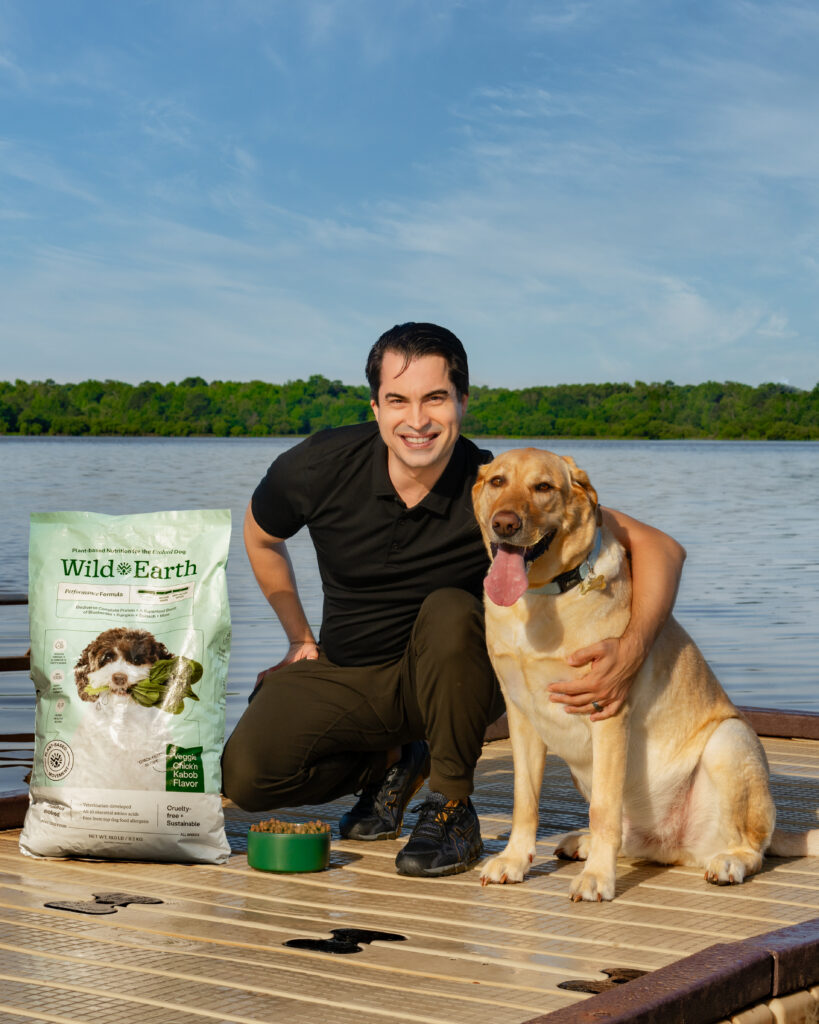
This is when he launched Sustainable Food Ventures with food and flavour scientist Mariliis Holm. It’s a rolling fund that backs 60 companies over three years (50% of which are first cheques). Over the last decade, Bethencourt has been involved in the angel or VC funding of more than 180 companies. Some of his favourites? Upside Foods, Mycoworks, NotCo, Geltor, Jellatech, Galy, Hoxton Farms and Farmless, among many others.
What does a serial investor like him look for in a company? The North Carolina resident has three simple criteria. He calls the first “missionary over mercenary”, indicating support only for people who deeply care about a sector. “They’ll keep going no matter what, and you need that when building a business. No company or industry stays hot forever, and when it gets brutally hard, that’s when missionaries shine,” he explains.
The next is a focus on new and interesting insights or technology, “ideally with a deep understanding of why others that have tried failed and why this time it’s different”. Finally, he asks the question: “Do I want to work with this person/team for the next few decades?” He believes this is his most unusual insight, as he views backing a founded as a lifelong commitment – it’s not just their first startup, but those that follow too. For example, he invested in Alan Perlstein’s Miraculex (now Oobli) years ago, and has since funded Perlstein’s latest startup, California Cultured.
“I still get founders of large commercial companies who call me and ask for my perspective on their companies or their next startup, and I love the fact they feel comfortable reaching out to me as the years roll on,” says Bethencourt.
Creating Wild Earth and securing a Shark Tank deal with Mark Cuban
It was at Indie.Bio when Bethencourt first became “obsessed about pet food”. There were a few reasons for this. The investor had learnt that 30% of the meat consumed in the US goes to feeding pets (which, to him, meant that 25-30% of factory-farmed animals could be replaced). He also realised that dogs, as omnivores, could “survive and thrive” on a plant-based diet. And he was even more shocked to find out that cats (traditionally seen as obligate carnivores) could similarly prosper on a nutritionally complete vegan diet.
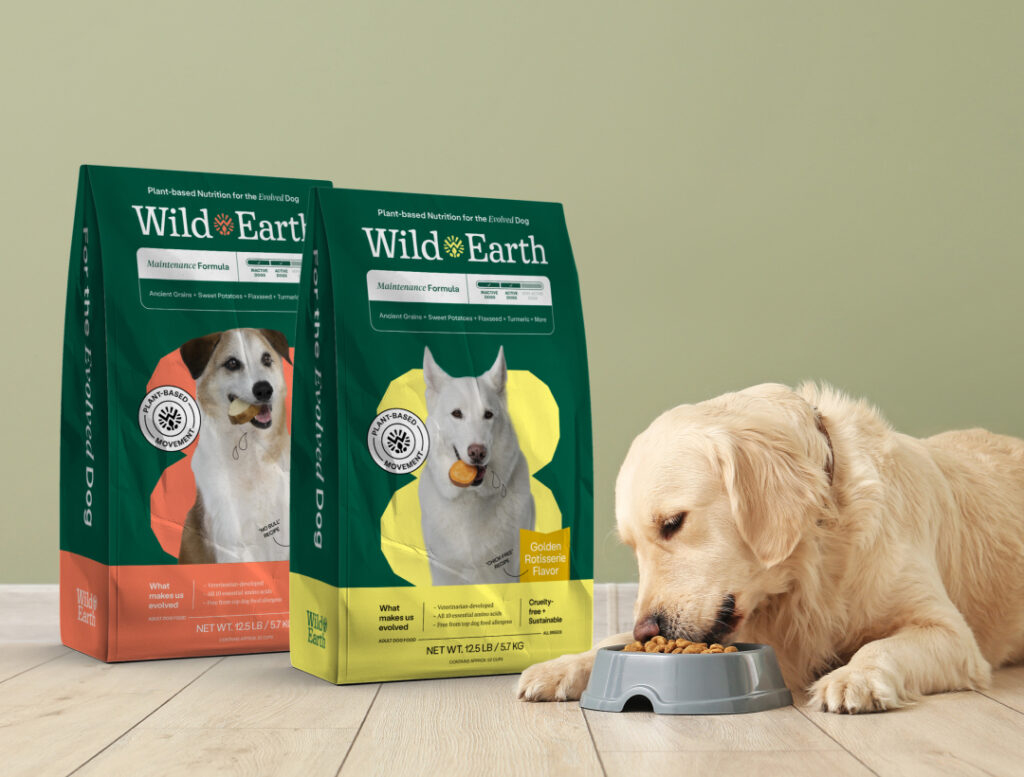
It sparked an idea that propelled Bethencourt to mainstream popularity. “I really believe in the saying: ‘Let food be thy medicine.” And most pet food is honestly horrible,” he says, invoking the dreaded 4Ds – dead, diseased, dying or downed animals – and referring to the contamination with euthanasia drugs and melted plastic.
“All of these contaminants have been found by the FDA in pet food, and that’s before you actually understand what our pets are being fed: ground-up chicken feathers, beaks and other horrible things,” he notes. “The great irony of this all is we can replace the entire rotten pet food industry with nutritionally compete plant-based and yeast-based proteins, clean and not gross.”
He took it upon himself to transform the pet food industry for all the animals, and started Wild Earth with his co-founders in 2017. Two years later, he appeared on national television with the aim of generating interest and investment in his company. Suffice it to say, he was successful in reaching his goal, and then some.
On Shark Tank, Bethencourt landed a deal with Mark Cuban, securing $550,000 for 10% of the company. (Since then, Wild Earth has closed Series A and A+ rounds to bring total funding to nearly $50M). “Shark Tank was a surreal experience,” he reveals. “A lot of people don’t know this, but there aren’t any redos on the show. When the doors open, you get one shot and that’s it, and the pressure is intense as they make sure you never meet the Sharks prior to the pitch.”
The Sharks went hard on Bethencourt after he revealed that Wild Earth had no commercial sales yet (with plans to launch its first product soon), despite essentially valuing the business at $11M. He expected that response. “We were trying our best to make sure we made the best dog food possible and it was taking a lot longer than I originally hoped,” he tells me.
“I hoped one of them would see the vision behind Wild Earth and why we had to bring change to the pet food industry, and luckily, right at the end when all the Sharks had declined, Mark looked at me and made me an offer. I honestly thought he was going to pass too, but he really understood where the future was going and was willing to take a chance.”
Bethencourt says Cuban and his team have provided “incredible support” over the years, adding that he speaks to Cuban every few weeks. “I think Mark also deeply understood the opportunity in the plant-based/vegan space,” he suggests. “After he backed us, I kept sending him studies on plant-based diets’ health benefits and strength/exercise benefits too. A few years back, Mark went mostly vegetarian, and I think it’s helped keep him in great shape on top of his commitment to lots of exercise.”
Exploring cultivated meat and health benefits of vegan pet food
Wild Earth didn’t stop at vegan pet food, though. In 2022, the company announced its foray into cultivated meat with a cultured chicken broth topper for dogs. A year and a bit later, it remains one of only a handful of producers working on cell-based pet food.
“I’ve spent a lot of time talking to everyone, including the biggest critics of the plant-based industry, cattle ranchers, self-proclaimed carnivores, and some of the biggest meat producers on the planet. I’m convinced that while many of us (at least 50% of us) are happy with plant-based and fermented protein options, there’s still a large group of consumers who want ‘real’ meat, and I think we can make those products for them too, [which] are slaughter-free, but real meat,” Bethencourt explains.
Did the company receive any concerns from its vegan consumer base? “Yes we did,” he confirms. “We had lots of conversations and as we’ve seen, this topic is controversial. It’s likely that we’ll launch a separate line of cultivated pet foods under a different brand to ensure that there’s no confusion.”
While all of Wild Earth’s consumer products will be vegan, this possible future line of cultivated products will cater to people who still want “real” meat for their pets, but want to skip the low quality and cruel use of animals in factory farming. “Our mission at Wild Earth is to make killer food without the killing,” states Bethencourt.
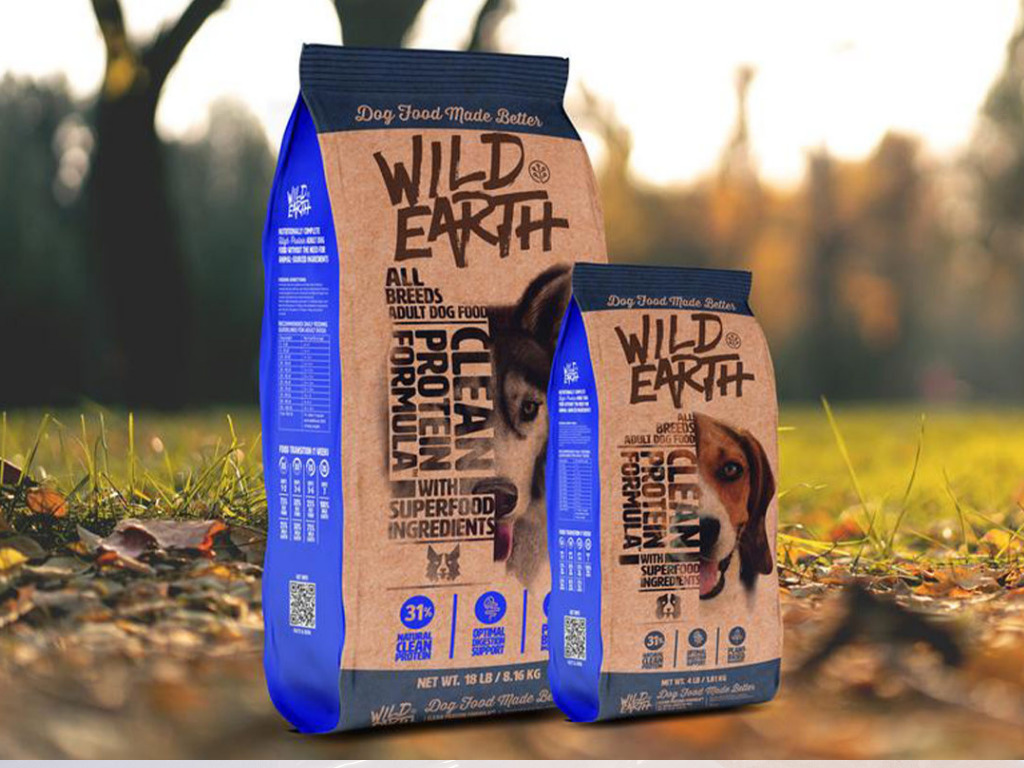
Consumer apprehension over the health aspects of alternative proteins is a key challenge for the industry in 2024. The Wild Earth CEO says he’s seen a “dramatic change” in perception about the health credentials of dog food in the last seven years. This shift has occurred both in consumers who’ve noticed benefits for their pets when eating vegan, and veterinarians who are recommending plant-based diets for dogs to tackle food allergies, weight control, diabetes and other clinical applications, according to Bethencourt.
“We’ve also seen a dramatic shift in who the average Wild Earth consumer is: when we started, the majority of our customers were vegan/vegetarians, but today, the majority of our customers aren’t (over 70%). We’re seeing widespread adoption from consumers just looking for cleaner and healthier food, and they’re now comfortable with plant-based pet foods.”
That has given rise to an increasing number of vegan pet food brands and products. One estimate put this market at $26B in 2022, predicting it to double to $57B by 2032. Companies like The Pack, Omni, Hownd (all UK), Noochies (Canada), Paleo (Belgium) are all innovating in this space, and that’s without looking at the larger players launching dedicated plant-based lines.
“The vast majority of both vegans and vegetarians still feed their pets meat-based pet food,” asserts Bethencourt. “I know because I get lectured almost daily (particularly) by vegans who tell me that dogs can’t be vegan (after we’ve fed tens of thousands of dogs plant-based diets for many, many years and they’ve thrived).
“I’m thankful I no longer get the death threats though,” he adds, recalling people’s uproar over feeding dogs vegan food. “Those were weird.”
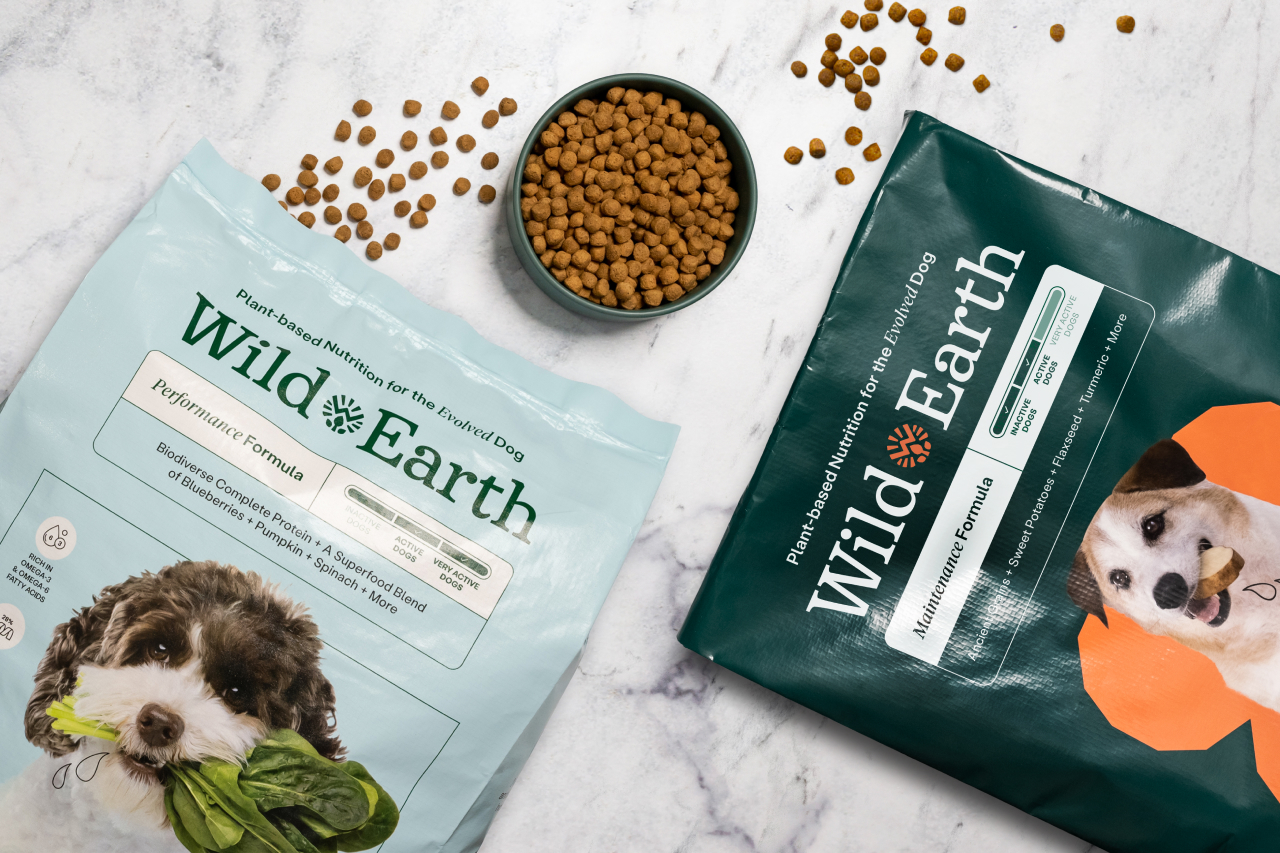
He calls recent research about the benefits of plant-based diets for pets his “favourite new development” in the space, particularly the studies by University of Winchester professor Andrew Knight. In 2022, he published a paper revealing that dogs fed vegan diets were healthier and required fewer veterinary interventions. He followed it up with similar research for cats, showing that felines on a plant-based diet could be healthier than those fed meat.
Bethencourt believes the increase in such studies has led to vets getting more receptive of vegan pet food, and industry giants like Mars, Nestlé and General Mills experimenting with plant-based launches. “We’re still early, [but] I’m confident we’re starting to reach a tipping point in the US, Europe and the UK, and hopefully soon globally,” he says.
‘Plant-based industry can learn a lot from Tesla’
While Wild Earth did develop its lines of cultured chicken (and beef), it has been forced to pause their development due to the challenging financial environment globally, doubling down on its commercial plant-based products instead. “We’re now in conversations with other companies who have developed cell-based lines about partnering to produce future slaughter-free meat lines,” reveals Bethencourt.
It’s reflective of the wider challenges for alternative meat across the world, a slump he calls “brutal, but… inevitable”. “All industries move in boom and bust cycles. In the plant-based space, most funding has frozen, but – and here’s the important part – the customers are still out there, and across Europe, the US and Asia more customers are becoming open to plant-based products,” he explains.
“I think one of the biggest challenges for all of us is competing with some of the planet’s largest companies in the food category. Most plant-based food companies are tiny in comparison to today’s food giants, but if we focus on making incredible products, with great customer benefits and very competitive prices, we can win.”
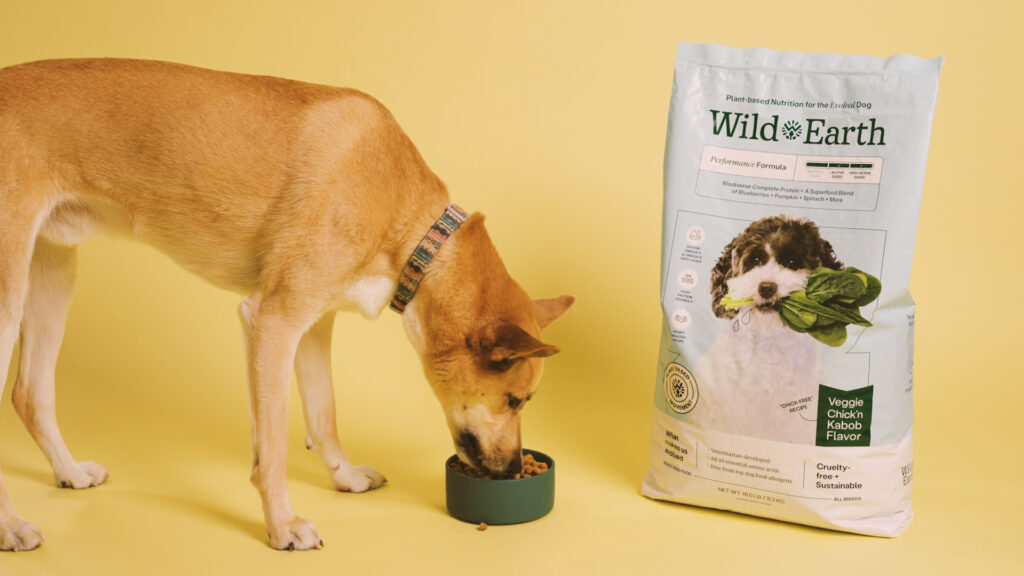
The narrative around plant-based hasn’t been helped by the attacks from some mainstream media outlets, which Bethencourt agrees are biased, given most of their advertisers still sell animal-based products, meaning they can’t be too critical. “In an era of AI and information warfare from both nation states through to large incumbents, we all have to think more independently and question everything,” he implores.
The Wild Earth CEO says the plant-based industry can learn a lot from the likes of Tesla, which launched with a premium line and has since aggressively increased product benefits and lowered prices. “People will want to buy tasty, healthier and cost-competitive products – we just have to push our industry harder to deliver on these, and that’s a hard challenge for us all,” he notes.
Going back to the media aspect, Tesla – a company that’s “probably the most hated by mainstream media” – is doing “an incredible amount of good”, despite governments and petrochemical giants being against it, according to Bethencourt: “They continue to win market share by focusing on innovation, their customers, and making better and increasingly more cost-competitive products.”
One company that’s doing it right in his eyes is Chile’s AI-led vegan startup NotCo. “From day one, Matias [Muchnik], their founder and CEO, has always said tastier products, healthier products and better-priced products will win, and they have all across Latin America.” (Most recently, the company’s collaboration with The Kraft Company bore fruit to a vegan version of the latter’s iconic boxed mac and cheese).
Wild Earth will launch cat food and a Basics line for dogs
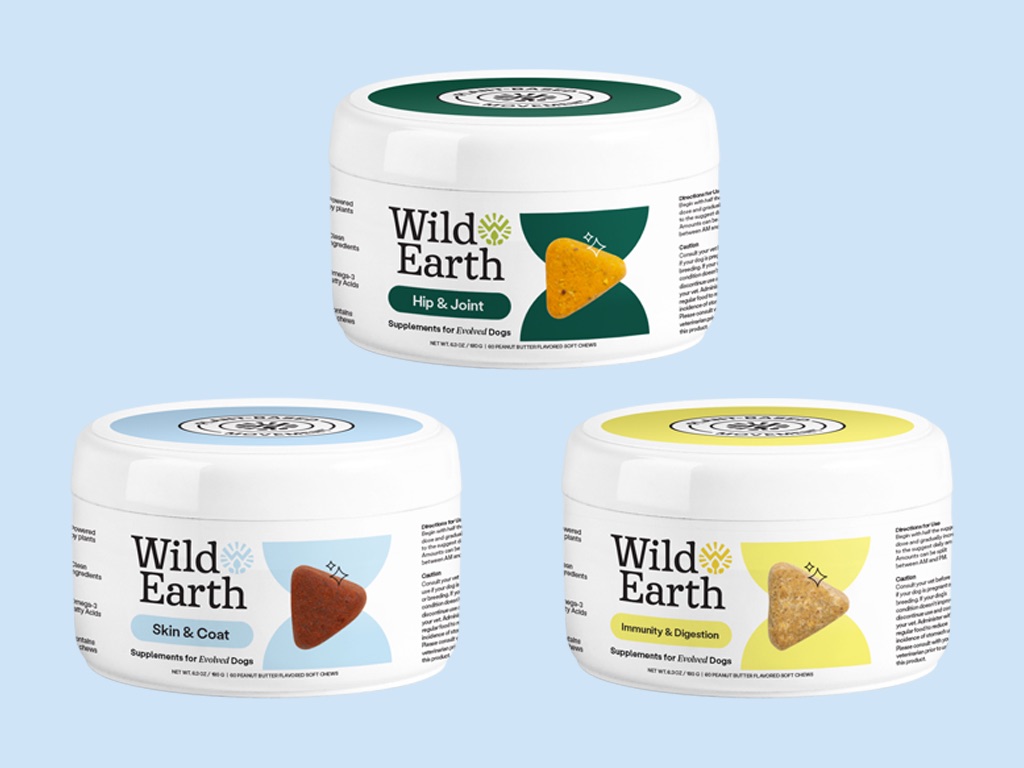
Since raising the half a million from Cuban on Shark Tank, Wild Earth has managed to release 14 products, feed tens of thousands of dogs, launch online and in retail nationwide, and sell over $42M worth of vegan dog food, treats and supplements. In the company’s early days, it was able to grow revenue by 25-50%, and last year, that figure crossed $10M. This year, the target is $15M, though the focus is on cost-efficient growth, keeping in mind the precarious economic landscape.
Its D2C business remains its most successful sales channel. “One of the hardest things for us was transforming from an R&D organization to a commercial organisation,” says Bethencourt. “It’s hard for any company but particularly for a mission-based company we’ve had to learn a lot of lessons, staying true to our mission means being effective and scaling sales.”
Now, Wild Earth is looking to expand into retail and diversify its product portfolio by launching a new cat food SKU, as well as an essential Basics line. The latter – set to launch later this year – will provide a lower-cost entry point for vegan pet food to cater to a wider audience. The company also hopes to return to India and Asia (where it was selling pre-pandemic), and enter Europe and Canada – international expansion is on the cards for 2025.
“We’re very optimistic about the future for plant-based pet food and think the first plant-based food boom and bust (for us and our pets) was just the end of the beginning of market adoption,” predicts Bethencourt, who foresees continued growth in the sector over the next decade.
“One of our guiding principles at Wild Earth is to be bold and push the pet industry to change,” he says. “We did this when we launched our plant-based dog food, treats and supplements, we’re doing that again with our vegan cat products and we’ll challenge ourselves again in the future to grow the space for cell-based meat to end the use of factory-farmed animals in pet food.
“It’s hard, but it’s something we believe is important to do for the world we want to see in the future.”

